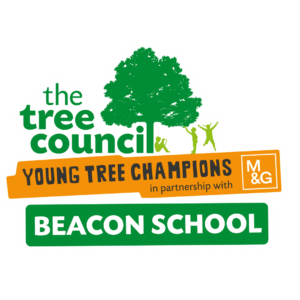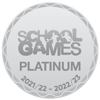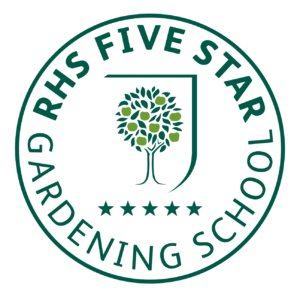Burlington Junior School – Admissions
There are two different types of admissions – those to start school at the ‘normal’ time for the start of the Year 3 and those for places in other year groups or at any other time – these are called ‘in-year’ applications for school places. In-year applications are made for example when a child is already attending one school and the parent/carers wish to move their child from one school to another, and when a family moves to a different area and needs a new school place for their child(ren).
The admission authority for our school is East Riding of Yorkshire Council and admissions applications are co-ordinated by the Local Authority.
If you would like to visit the school when considering making an application, please call 01262 674487 to arrange a visit.
How do I apply for a ‘normal’ school place for my child?
Applications to start our school for the first time, for the start of Year 3 should be made direct to the Local Authority in which you live by the deadline for applications. Late applications will be considered after those submitted by the deadline, often when there are no places available so it is important that you apply on-time. If you live in the East Riding of Yorkshire Council area, then you can find more information about ‘normal’ admissions processes, deadlines, details of the appeal process and other information at www.eastriding.gov.uk/apply-for-a-school-place. If you live outside the East Riding, you should apply to your ‘home’ Local Authority and not East Riding of Yorkshire Council.
How do I apply for an ‘in-year’ school place for my child?
Applications for school places are made through the local authority’s co-ordinated admissions scheme for in-year applications. Applications to start our school in-year should be made direct to the Local Authority no earlier than one term before the place is required, and it is recommended that you apply no later than a period of twenty school days, that is four weeks in term time, before you wish for the place to be available for your child. Applications are considered in the order that they have been received, for example if there is one space available in a year group, the parent/carer who applied for their place first will likely be allocated the place for their child. Proof of residence may be required before places can be allocated, and the school fully adheres to the East Riding Fair Access Protocol. Applicants will be informed of the outcome of their application as soon as is possible, though this is commonly ten school days after an application has been received, but may be later in certain circumstances.
If you live in the East Riding of Yorkshire Council area, then you can find more information about ‘in-year’ admissions processes, and details of the co-ordinated admissions scheme at www.eastriding.gov.uk/school-admissions where you can also find and download an application form along with details of how to appeal for a school place where you have been refused. If you live outside the East Riding, you should apply to your ‘home’ Local Authority and not East Riding of Yorkshire Council.
Who makes decisions on school admissions applications?
As we are a community controlled school, the admissions authority for the school is East Riding of Yorkshire Council. It is the admission authority who determines whether there is an available place based upon the capacity of the class/year group and the number of pupils already on roll, but the Council do so working closely with schools when applications are received.
Who should I contact with queries on school admissions?
“Staff, including those at the early stages of their careers, say they feel supported to fulfil their roles.”
“Pupils speak
enthusiastically about the range of after-school activities on offer.”
“Would recommend this school 100%. My child is very happy.”
“I like doing writing and maths because in maths you get to learn different methods to answer questions and I like writing stories.”
“My child has settled really well here, she feels happy and her hard work is recognised. Very pleased.”
“The best thing about Burlington Junior School is the lessons are fun and interesting and we always learn something new.”
“Daily phonics lessons and extra support in the afternoon take place for pupils who are at the early stages of reading.”
“Leaders develop pupils’ experiences beyond the community, including
annual visits to London.”
“My kids love it at Burlington Junior School.”
“My daughter is very happy at school and is doing well. I am pleased with her progress.”
“In school I like the writing because you get to write about your favourite things. I love all the language you can use.”
“Since implementation of Class Dojo we are much more aware of the things that happen whilst at school. Also the Dojo Points System is a great way to monitor progress.”
“Leaders encourage good mental health through nurture sessions and a
‘nature’ programme.”
“‘There is something for everyone.’ Clubs range from golfing, cheerleading, football and rugby to mindfulness, yoga and knitting.”
“In English and mathematics, pupils, including those with special educational needs and/or disabilities (SEND), remember what they have learned over time.”
“My child loves this school.”
“Leaders are passionate about ensuring that all pupils receive the education they deserve.”
“Parents comment that their children ‘really enjoy reading for pleasure’.”
“Pupils take home books that match their phonics ability. This helps them to become confident and fluent readers.”
“My most favourite thing in Burlington Juniors is that we all help each other and that if someone is upset other people go and talk and play with them.”
“I like Burlington Junior School because we get to go on trips.”
“Both children have attended this school. Both have enjoyed it and have reached their potential.”
“Good transition from Year 4- 5. My child is in a smaller class, well supported in English and Maths. Nurtured and settled.”
“Leaders are keen to ‘sow the seeds of interest’ regarding careers.”
“The school has
put in place a range of strategies and interventions to support pupils with their emotional health and well-being and behaviour.”
“Behaviour and attendance continue to improve throughout school.”
“Leaders plan aspects of the science curriculum in order to promote
engineering.”
“Communication with parents has improved recently, Class Dojo is a good addition. Good to see the topics for this half-term.”
“I like this school because we get to learn new things every day”
“I like learning because I think learning is fun and it allows me to push myself and learn new things every day.”
“Pupils are happy to
attend school. Parents say their children are ‘well cared for, feel safe and can be
themselves’.”
“This is my third child to go all the way through Burlington and I would recommend this school every time.”
“I like learning about history and the Romans and we are going on a trip to Murton Park.”
“The thing I like about Burlington Junior school is that the teachers are very nice and it’s easy to make new friends.”
“Leaders achieve this
through daily story-time sessions and ‘reading ambassadors’ who promote reading with their peers.”
“My child has settled well into Year 3. She enjoys Maths especially.”
“Burlington Junior School is a wonderful school with great staff. They have helped me to become really independent whilst supporting me. I am really happy at this school.”
“Leaders continue to develop a broad and balanced curriculum that raises pupils’ aspirations.”
“What I like about Burlington Junior School is learning because if you listen carefully you will get smart and you will have a good education and you will get a good job.”
“Leaders strive to develop a curriculum that engages and inspires pupils.”
“Leaders have high expectations of pupils’ behaviour.”
“Leaders provide a range of opportunities to develop pupils’ interests.”
“Leaders create a positive environment where pupils flourish.”
“All 3 of my children are very happy at this school”.
“Subject leaders are invited to share curriculum plans with governors.”
“Furthermore, leaders invite pupils to attend afterschool sessions to help them catch up quickly.”










